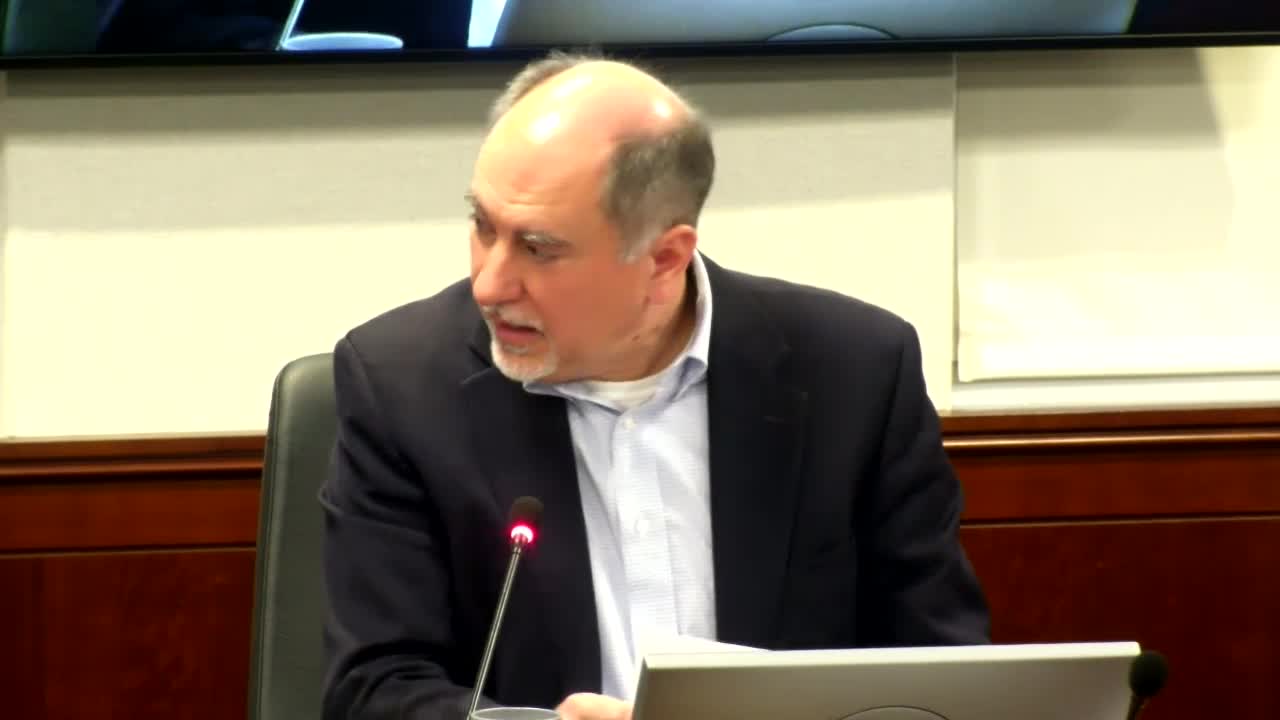Prince George's County committee holds bill requiring periodic inspections of conserved woodlands
Get AI-powered insights, summaries, and transcripts
Subscribe
Summary
The Transportation, Infrastructure, Energy and Environment Committee held CB-13-2025, a bill that would require periodic inspections, reporting and penalties for tree conservation areas; committee members and agency staff disagreed on staffing and cost estimates.
Chair Osoff, sponsor of CB-13-2025, introduced the bill to the Transportation, Infrastructure, Energy and Environment Committee on March 13, 2025. The legislation would amend Subtitle 25 (Trees and Vegetation), Division 2 (Woodland and Wildlife Conservation), adding periodic inspections of tree conservation areas identified in approved tree conservation plans and requiring annual, district-level inspection reports.
The bill would require an initial inspection by the Department of Permitting, Inspections and Enforcement (DPIE) no later than two years after a use-and-occupancy permit is issued for the subject property, and inspections every five years thereafter. DPIE would submit an annual report by council district listing findings, corrective actions and the status of those actions. Violations would receive a six-month correction period with required reinspection; penalties would be $2,500 for violations not corrected within six months and $5,000 for each subsequent month the violation persists. The bill would also incorporate these provisions into conservation easements recorded after the legislation’s effective date.
Alex Hertel, legislative policy analyst, told the committee DPIE reported that current staffing cannot meet the inspection workload called for by CB-13-2025 and that the department estimated about 14 new staff would be required; Hertel said the department provided no total cost figure. Hertel also noted an estimated $58,500 for IT (“momentum”) upgrades and additional ongoing costs for vehicles, office space, furnishings and salaries.
Chair Osoff, the bill sponsor, said the measure responds to recurring problems where reserved woodland conservation areas are left unmanaged after development and can become unhealthy stands dominated by invasive species and dying specimen trees. "My concern was, who's paying attention, what's happening, when those areas that have been set aside... the promise to the public is that those are gonna be maintained," Osoff said. He added the bill was intended to be measured — inspections every five years — and that he was skeptical of the department’s 14‑staff estimate and would hold the bill to seek clarification.
DPIE Chief of Staff Lori Paris said the department’s inspection staff are working at or beyond capacity, and that implementing a new countywide inspection role for tree conservation would likely require a new division with a supervisor, inspectors, administrative staff and supporting resources. "Our current staff right now is at its maximum," Paris said, adding that overtime is currently used to address emergency and routine needs and that DPIE would provide more detailed staffing and division-level information to the sponsor and committee.
Council members pressed for more detail. Council member DeNoga asked whether existing inspection programs — he referenced a two‑year stormwater inspection program that visits private properties — could be leveraged for tree inspections and how many vehicles and staff already exist. Paris said she would research which divisions perform similar inspections and return information to the committee. Members also referenced Montgomery County’s program; the sponsor said Montgomery County has four staff who do a higher-level, GIS-enabled review rather than the health and invasive-species focus proposed in CB-13-2025.
After discussion, Chair Osoff moved to hold the bill for further review; the motion passed on a voice/roll call vote, recorded 5–0 in favor of holding the measure.
The committee agreed to follow up with DPIE and the bill sponsor to reconcile staffing and cost estimates and to seek details about existing inspection programs that might reduce new hiring needs. The bill will return to committee after those clarifications.
